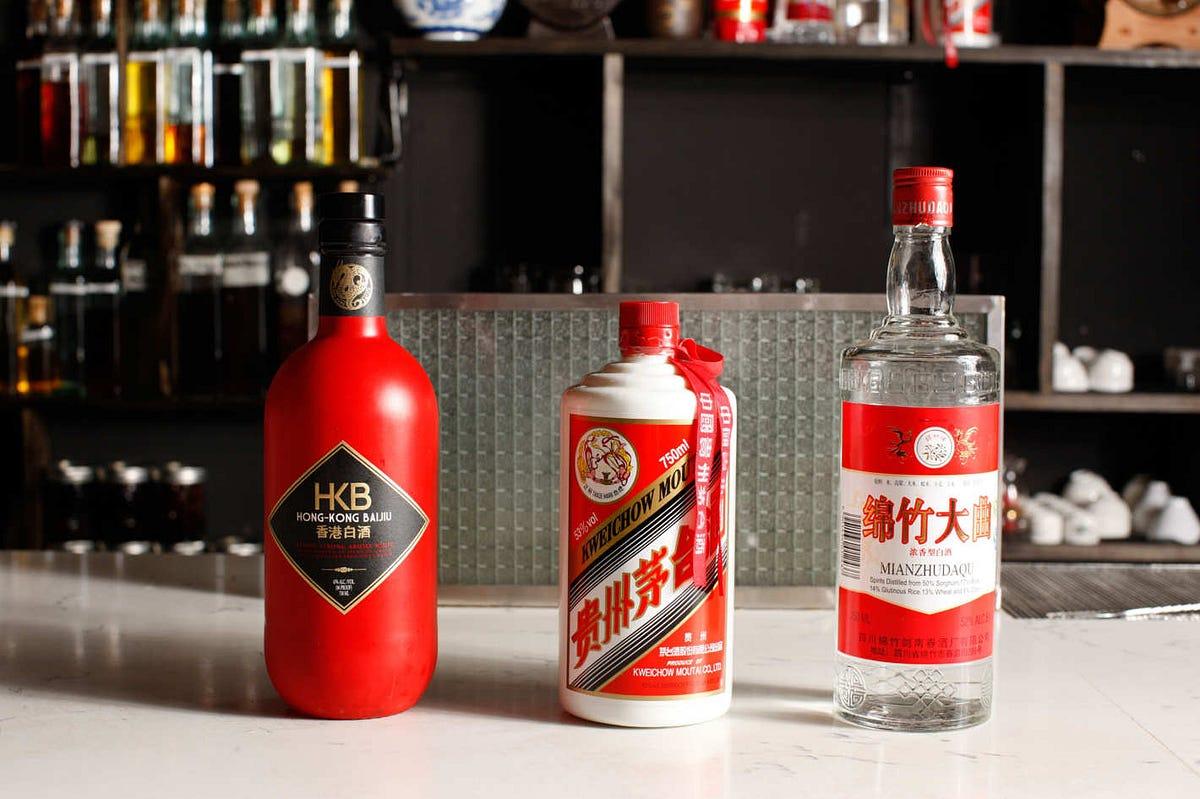Baijiu is a clear liquor that has been an integral part of Chinese culture and cuisine for over 2000 years. As the most popular alcoholic beverage in China, this potent spirit offers a unique taste of Chinese tradition.
The History of Baijiu
Archaeological evidence points to winemaking and distillation occurring as early as 1100 BC during the Shang Dynasty in northern China. However, it wasn't until the Ming Dynasty (1368-1644 AD) that large-scale production of baijiu began. The liquor was produced primarily from sorghum, which was a common grain crop well suited to China's climate. Over time, different regions developed their own unique production methods and flavor profiles, cementing baijiu as an important part of local culture and identity.
Today, baijiu production remains a major industry in China. The country accounts for over 70% of total global consumption, estimated at over 15 billion liters annually. Various regional styles reflect evolving tastes as well as ancient production techniques passed down through generations.
Regional Styles of Baijiu
Shandong Baijiu: Known for its full aroma and gentle flavor, Shandong Baijiu is one of the most widely consumed varieties. Made primarily from sorghum, this style has a subtle sweetness with notes of flowers and spice. It pairs beautifully with Chinese cuisine.
Guizhou Baijiu: Hailing from mountainous Guizhou province, this potent spirit derives its distinctive character from use of yellow rice. Aromas of toasted grains and dried fruit give way to a warming, complex palate with lingering spice and honeyed tones. Sip neat or use sparingly in cooking.
Maotai Liquor: Perhaps the most famous baijiu globally, Maotai hails from Guizhou and is treasured as a gift or consumed during celebrations. Produced using a secret multi-grain fermentation method since 1683, it presents with alluring aromas of dried fruit, honey, and pine wood. Full bodied yet elegant, with a deceptively smooth finish.
Wuliangye: Another venerable distillery hailing from Yibin, Sichuan. Using sorghum and aged for over 10 years, this baijiu has a deep golden color and complex flavors ranging from dried orange peel and honey to toasted nuts and spice. Smooth and refined, befitting its premium status.
Production Techniques Yield Unique Profiles
The production of baijiu differs significantly from that of Western spirits such as whiskey or brandy. Key methods that impact flavor include:
Solid-State Fermentation: Uncooked grains are fermented with the help of koji mold, yeasts, and bacteria living on damp grain beds. This slow process allows complex flavors to develop over weeks or months.
Distillation Methods: Pot stills are commonly used for multiple delicate distillations. Some styles also employ re-distillation of the residue or "solid" remaining after distillation for a richer, more robust spirit.
Aging: Methods range from no aging at all to 10+ years maturation in ceramic jars buried underground. Aging mellows the raw alcohol and intensifies flavors through reactions with the container.
The unique combinations of local ingredients, fermentation techniques, distillation methods and aging processes give each region's baijiu its own distinct personality. Experimenting with different styles offers an intriguing window into Chinese culinary traditions and culture.
Health Effects and Food Pairings
Baijiu packs a potent alcoholic punch, with some premium varieties boasting well over 50% ABV. Aside from the expected impacts of high alcohol consumption, some preliminary research also links baijiu to certain health benefits. Studies have found compounds in baijiu may aid digestion, support cardiovascular health, and possess mild antimicrobial properties. Of course, as with any spirit, moderation is key.
When it comes to food pairings, baijiu's diverse flavor profiles allow flexible matching with Chinese cuisine. Light, subtly sweet styles shine alongside dim sum, dumplings, and braised meats. Robust aged varieties complement boldly flavored hotpot broths and mapo tofu. For a quintessential experience, enjoy baijiu alongside a rich banquet of classic Chinese dishes.
With over two millennia of history, baijiu offers a complex, heritage-rich spirit that unveils new layers with each sip. Both treasured part of cultural celebrations and incorporated into Chinese cooking, it tells the multifaceted story of the country and its people. For travelers and liquor enthusiasts alike, discovering regional baijiu styles provides a portal into local identities and traditions across China. Whether enjoyed straight, mixed into cocktails, or used in cooking, baijiu is a nuanced taste of history that every drinking adventurer should seek to understand.
Get more insights on this topic:
https://www.insightprobing.com/baijiu-regional-insights/
Check below trending articles on this topic:
https://captionssky.com/bunker-fuel-a-gateway-for-global-trade-but-hazard-for-environment/
